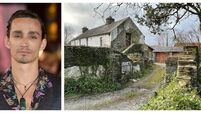Crash victims’ funerals - Lessons must be learned
It was the worst crash on Irish roads since records began almost half a century ago.
The accident comes against the backdrop of a distinct improvement on Irish roads over recent years. Road deaths have declined by more than 40% in the last eight years, but there is still room for a great deal of improvement, as Ireland stands seventh out of the 27 EU states in road deaths per million population.














